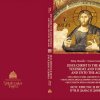In 2001, Sanja applied to and was accepted by the Faculty of Dramatic Arts for their prestigious theater-directing program. The program receives on average four hundred (400) applications each year but only accepts four (4) students. There, Sanja studied under Professor Ivana Vujic. During her time as a student, Sanja was the assistant director to many famous directors of the former Yugoslavia and Serbia. She has worked with: Dusan Jovanovic, Ljubisa Ristic, Slobodan Umnkovski, Aleksandar Popovski, Filip Gajic, Gorcin Stojanovic, Egon Savin, Ivana Vujic and Jug Radivojevic . Her work as a student also included productions with the Association of Non-Verbal Theaters in Belgrade, Serbia. She was member of the Svan Theater, the only theater where non-verbal performances set to music were put on. There she performed and directed. One of her plays, the “Play Against Violence”, showcased the life and emotions of Serbians during the Belgrade bombings. Sanje Bestic explored different schools of acting. She was professionally trained in artistic coaching and theme building while doing a fellowship at the Moving Academy for Performing Arts in Amsterdam. She also did intensive work with the Theater of Shadows where she learned to move, act and express herself as a shadow behind a white screen. Simultaneously, she directed the artistic venture and was involved in all steps of the production at the Theater of Shadows. Sanja believes that one is not going to be a good director unless she has experienced all aspects of a production. Sanja also spent some time studying in the US. She studied at The Michael Chekhov Acting Studio in New York City. There she continued to study non-verbal theater expression with an emphasis on movement and the use of the body as an expressive instrument. She also studied acting at the Lee Strasburg Institute for Theater and Film. It was also in New York City that Sanja directed “Canary Soup,” her first professional production. “Canary Soup” played at The Kraine Theater, an off-Broadway theatre, located in New York City’s East Village. The story about male/female relationships and the dilemma of whether or not to marry played to sold-out audiences from October - November, 2004. In 2006, Sanja continued her success. She produced and directed the play “Two Fools in Love” at the Mata Milosevic Theater in Belgrade. The play was rich with the universal themes found in keeping the innocence of first love, relationships, suffering in the world today and continuing to be honest with oneself and everyone else.
In addition to her work as a theater director, Sanja has put her artistic ability to work in the corporate world. Her resume includes work for Serbian advertising and marketing companies. She has directed television commercials and short films. Her work included TV commercials for Henkel (a German company that is the equivalent of the US Proctor & Gamble), Societe Generale (a French bank), and Vegeta (Podravka) (a Coatian seasoning). In addition to that, she worked for Iteam Events, an international marketing agency, where she directed and produced stage events at various theaters, ballrooms and other venues.
Sanja takes the most pride, though, in her humanitarian work. She has worked with The Beogradski Igracki Center (BIC), a non-profit organization that provides an artistic setting to work with children having special needs. Sanja has also put her talent into action in the fight against breast cancer. Sanja worked together with Nebosa Babic, one of Serbia’s most acclaimed photographers, to produce a video for the “You are Unique Campaign,” a campaign dedicated to raising breast cancer awareness. The video showcased Serbian celebrities who survived breast cancer or were close to someone who suffered from breast cancer. The Weeping Game by Ben Akiba (aka Branislav Nusic) is Sanja’s third Off-Brodway production. Sanja also directed , Touch my Knees by David Albahari, The Government Inspector by Nikolai V. Gogol, Canary Soup by Milos Radovic, and Two Fools in Love by Dusko Radovic, and Painkillers by Neda Radulovic.
Links:





